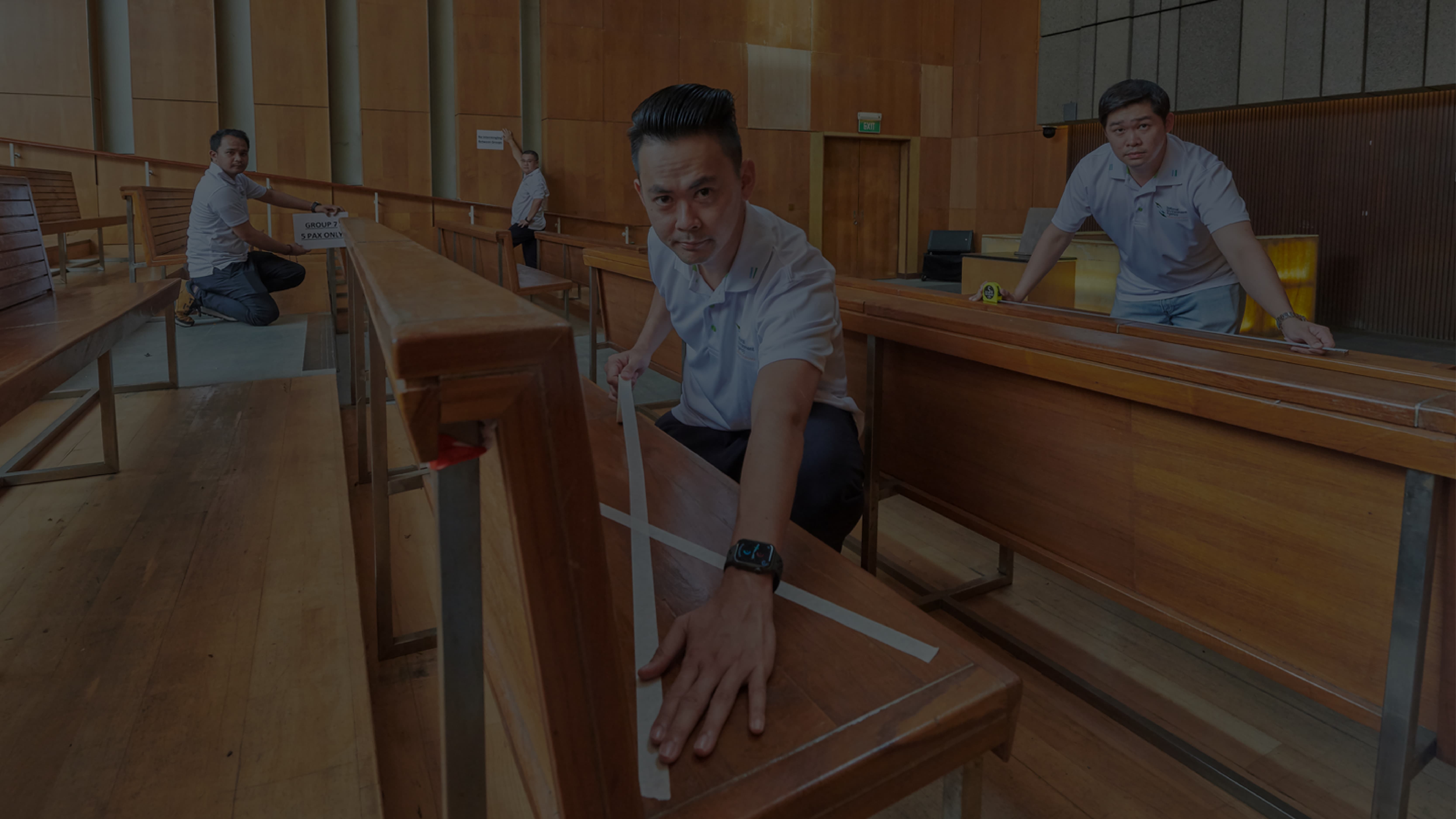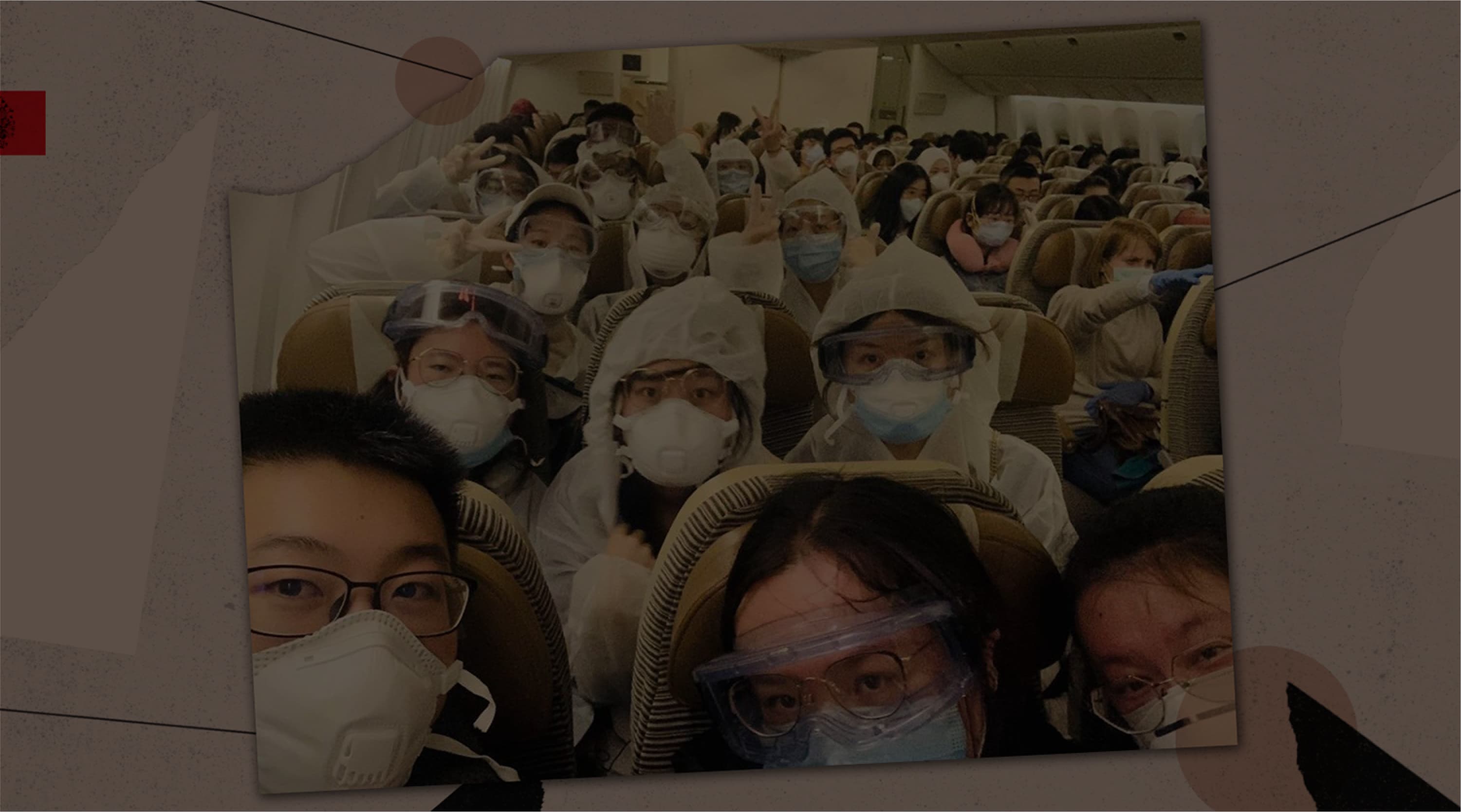Do It With Tech
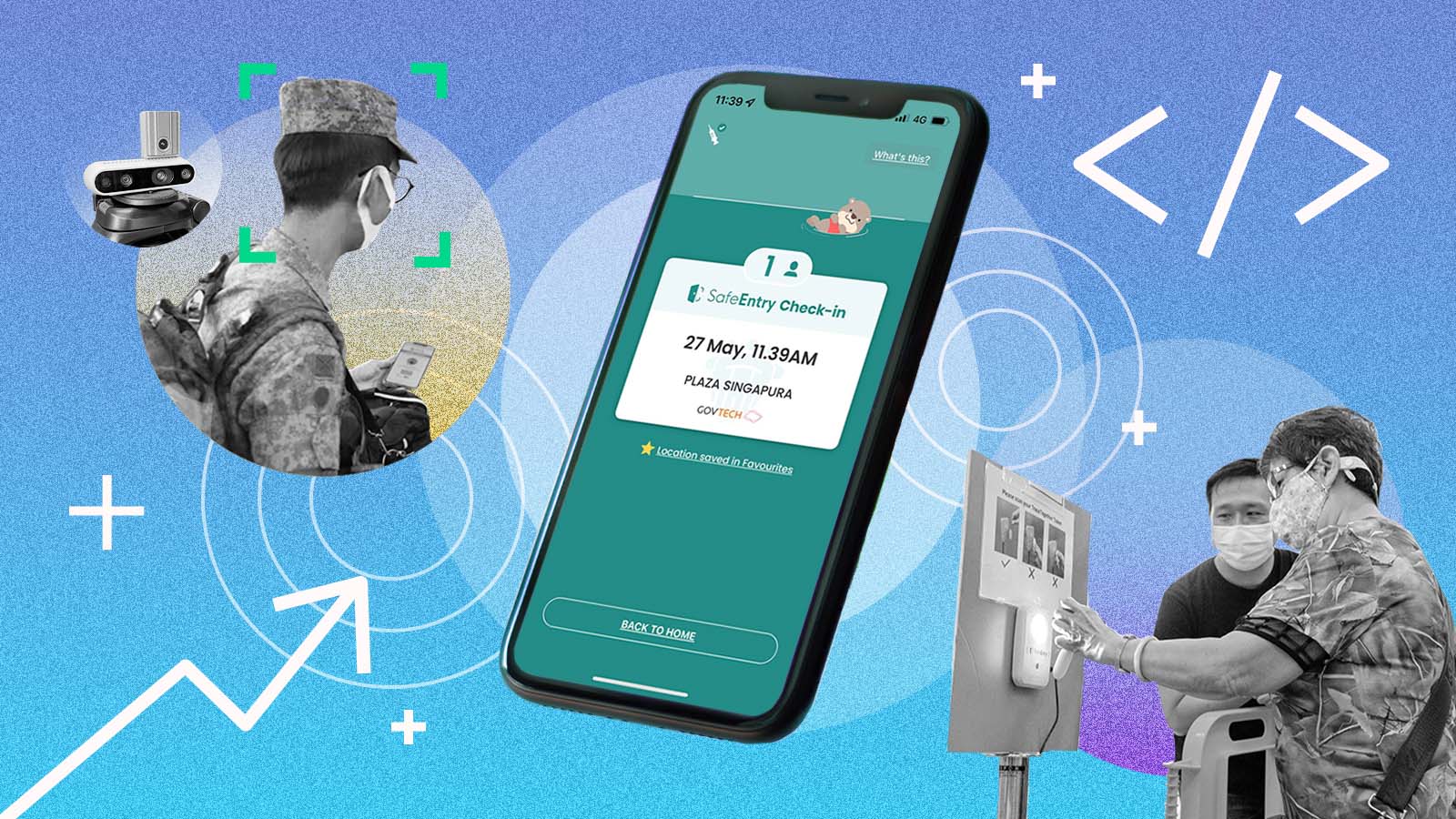
COVID-19 has reshaped our lives in a myriad of ways – particularly in accelerating the adoption of countless technological tools. In Singapore, the Public Service took the Smart Nation drive into high gear, as agencies launched a variety of handy apps, websites and other innovations to strengthen the national pandemic response and keep people informed, connected and safe.
Beep To Greet You
From scribbling on paper forms to tapping on digital ones and fumbling for one’s identity card, contact tracing in Singapore has come a long way.
Very quickly, all it took was a quick beep with a TraceTogether token or smartphone app to do just that. At almost every public venue, until restrictions eased on April 26, 2022, SafeEntry Gateway boxes and QR codes allowed us to quickly check in and out as we go about our daily life.
Developed by the Government Technology Agency (GovTech), the SafeEntry and TraceTogether apps work together to facilitate quick and accurate contact tracing – an established public health strategy that has been the backbone of Singapore’s COVID-19 response. Contact tracing identifies those exposed to an infectious virus for speedy containment, enabling the quick ringfencing of clusters to break chains of transmission.
In September 2020, SafeEntry recorded an average of 4 million check-ins and check-outs a day.

Robot Friends to the Rescue
From SPOT the safe distancing dog to MATAR the tireless patrol rover and drones for ground surveillance, AI- and video-enabled robots have helped to alleviate some of the manpower strains caused by the pandemic. Built to be controlled remotely and work autonomously, while being able to navigate safely, SPOT and MATAR have been used at parks and dormitories respectively. Drones have also been used by both the National Parks Board and the Singapore Police Force to provide a vantage view over large areas for visitor numbers and crowd data.
‘Go Where’: Our Go-to for Help
A series of ‘go where’ websites – catchily named in the Singlish vernacular – have become the go-to for accurate and reliable information for a number of essential services and resources. From reusable face masks distributed by the government to TraceTogether tokens and locations of COVID-prepared clinics, these websites cut through the flood of information to consolidate answers for key COVID-related searches.
- MaskGoWhere: Find a designated location, day and time to collect government-allocated masks
- FluGoWhere: Search for Public Health Preparedness Clinics with special subsidies for respiratory illnesses
- TokenGoWhere: Search for the nearest venue for TraceTogether token collection or replacement
- SupportGoWhere: Access support schemes and recovery grants
- GoWhereART: Locate the nearest ART kit collection centre
Many more such websites have been added to the Go Where directory as regulations evolve.
One-stop Portals
Government portals have been enhanced further to raise the rate of digital transactions. Beyond updating AskJamie the chatbot with common COVID-related queries on every government website, more has been done to raise access to e-services.
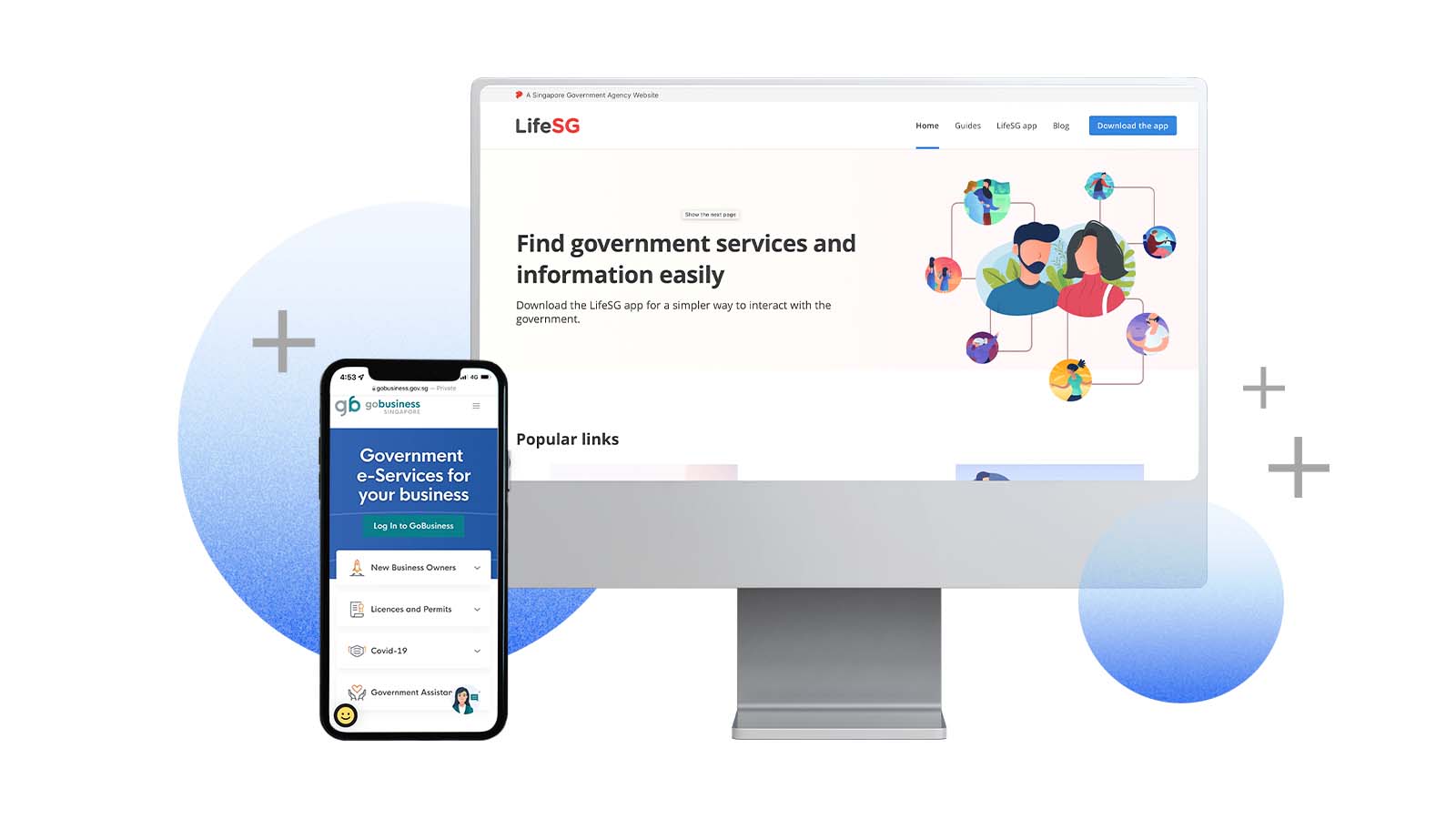
Take LifeSG, a rebranded and enhanced version of the mobile application formerly known as Moments of Life. From its original intent of serving parents for birth registration of their newborns, it now consolidates more than 100 e-services in a single app, making it a convenient one-stop solution for government services for all demographics and needs, from making appointments at ServiceSG Centres, to accessing eligible government benefits like SkillsFuture Credits, or self-help guides and resources on making a career switch.
The GoBusiness portal was also speedily updated to guide businesses with useful information on COVID-related regulations, permitted services, applications for exemptions, safe management measures and a list of government support schemes.
The portal continues to play a crucial role in guiding companies as they navigate business life amid COVID-19.
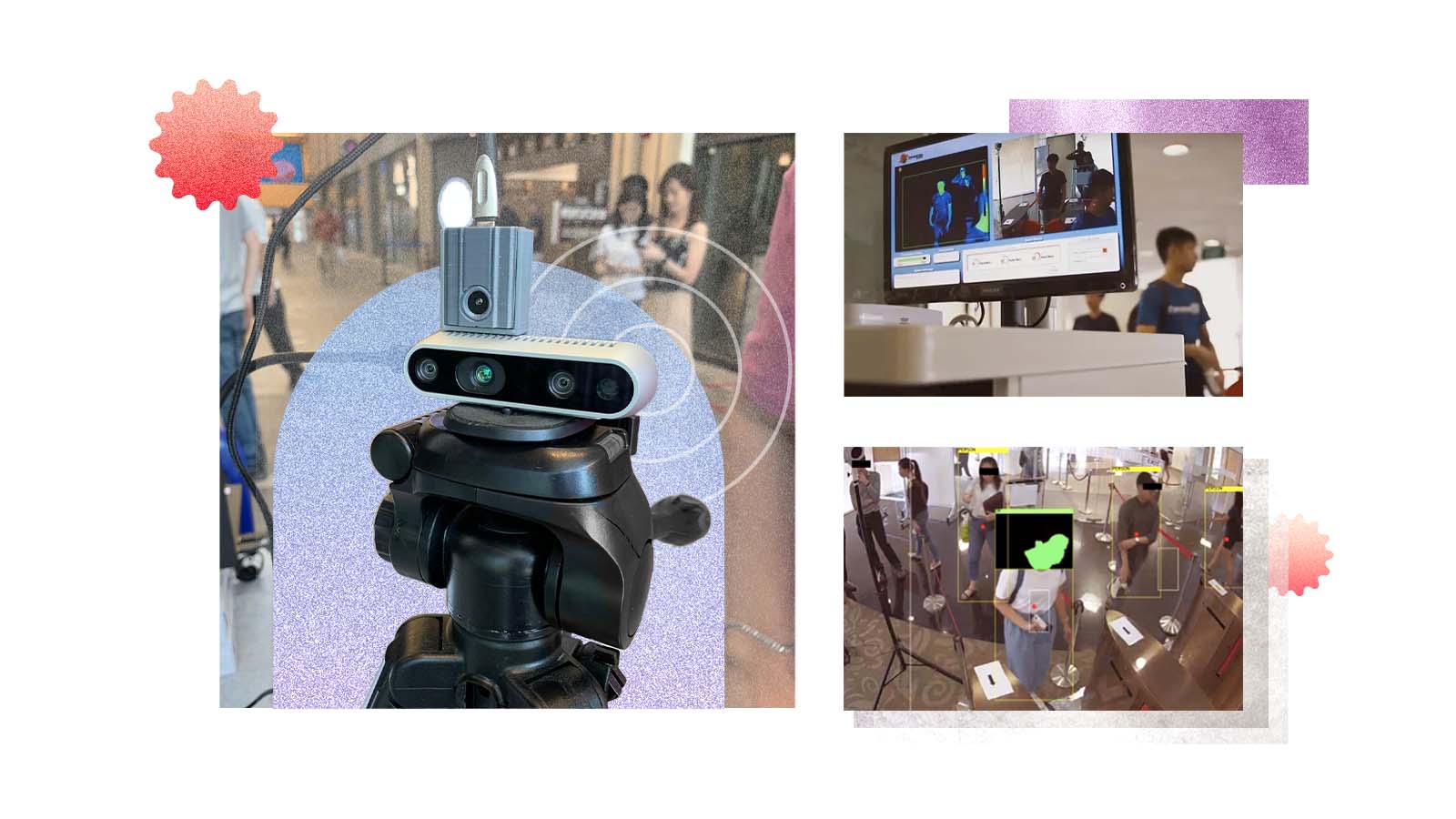
Touch-me-Not Temperature-taking
For many infectious respiratory illnesses such as SARS and H1N1, fever is one of the most obvious indicators of infection. While temperature screening is no longer used to detect a potential COVID-19 infection, it was natural to assume the same would apply for COVID-19, especially in the early days of 2020.
Several GovTech teams set to work on various temperature-taking innovations, rapidly developing and implementing them in record time. One was a self-service non-contact infrared thermometer that was sent to community locations and people-facing government agencies as early as March 2020.
One was VigilantGantry, an AI-driven automated temperature screening gantry that additionally provides a physical barrier. The modular system is easily integrated with off-the-shelf electronics, existing thermal systems, mobile optical cameras and facial recognition. The code is also open-source to allow users to adapt it to their needs.
Another was SPOTON – a mobile, low-cost and scalable thermal scanner was also developed for areas with high volumes. SPOTON is a software solution that can be mounted on a 3D-printed case and easily paired with commercial off-the-shelf thermal sensors and webcams.
Taking Swabs to the Next Level
Testing has been and will continue to be an essential tool in COVID-19 management. Researchers, clinicians and more have made an important impact in this area with several unique test kits that do more than the average swab.
- The Fortitude Kit: A multi-virus test kit developed by A*STAR and Tan Tock Seng Hospital detects both COVID-19 and the seasonal flu, allowing for a more precise diagnosis of respiratory illness. It has been in use in Singapore since February 2020 and is also used globally in over 45 countries.
- The Resolute Kit: Developed by A*STAR’s Diagnostics Development Hub and DSO National Laboratories, this Direct-Polymerase Chain Reaction diagnostic test kit for COVID-19 cuts testing time by half from four to two hours. It is also more cost-effective, uses fewer raw materials and does not require special equipment or skills.
- SwabBot: SingHealth clinicians developed a robot that can conduct self-administrated swab tests, saving manpower and lowering the risk of exposure.
Smarter Than the Average Mask
A “smart mask” designed by researchers from A*STAR and the Nanyang Technological University, Singapore (NTU Singapore) does more than provide a safety barrier against respiratory droplets. The mask can monitor vital signs associated with coronaviruses such as blood oxygen saturation, blood pressure, heart rate and skin temperature.
Dubbed “Lab-on-Mask”, the mask has sensors embedded in a special skin-like material. These sensors collect information from the wearer and send the data to a system in real time. This potentially reduces the number of checks that healthcare workers need to do – while enabling early detection and monitoring of serious illnesses.
At public hospitals, speech therapists are using transparent medical masks. Made of medical grade material, these masks have a 3D design and an anti-fog clear window that keep a therapist’s lip movements visible to patients with speech, language, communication and swallowing difficulties. A*STAR developed these masks with Sengkang General Hospital and local mask maker Forever Family, building on an earlier design for the Deaf and hard of hearing.
A System for Monitoring Situations on the Ground
Sharon Ang from the Defence Science and Technology Agency led a multidisciplinary team to swiftly develop a COVID-19 command-and-control system that provided an accurate and holistic picture of the ground situation to support multi-agency COVID-19 relief efforts. As a leader, she understands the demands that are put upon her team, while empowering her team leads and ensuring their morale and safety. For her efforts, Sharon was awarded the Exemplary Leader Award at the 2022 COVID-19 Public Sector Transformation Awards.
- POSTED ON
Jul 6, 2022
- TEXT BY
Sheralyn Tay
- ILLUSTRATION BY
Liew Xinyi






